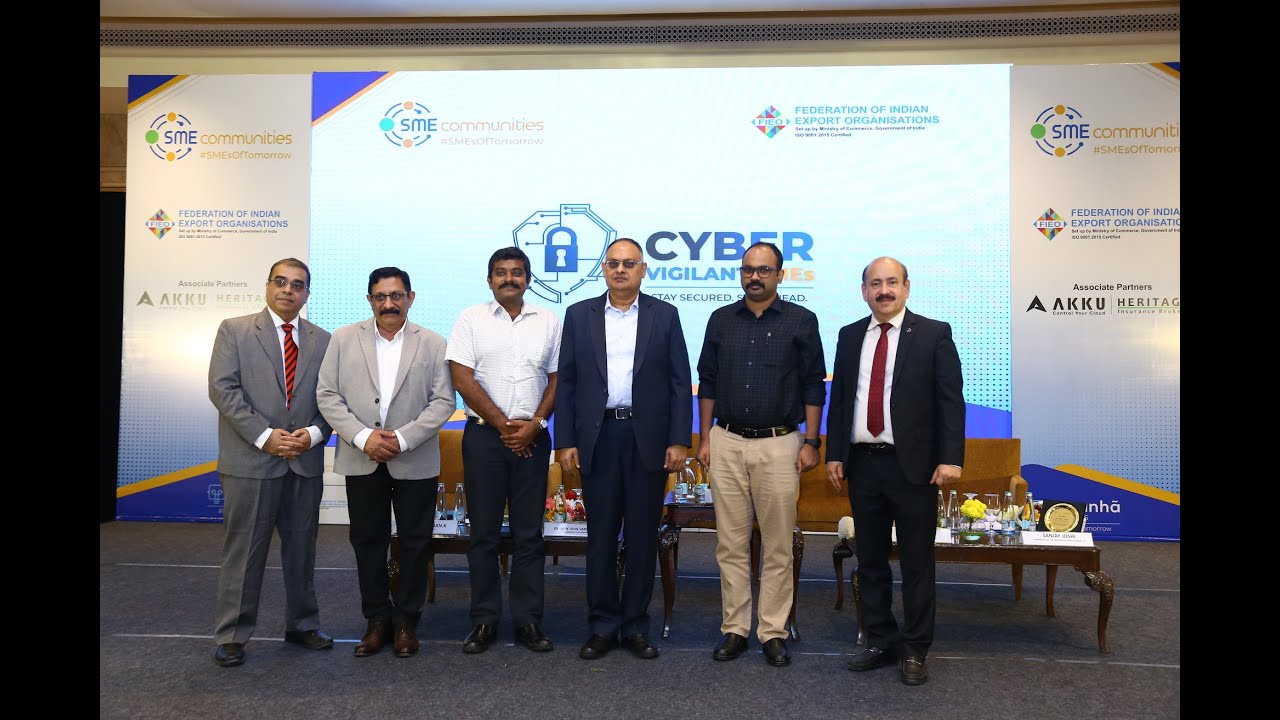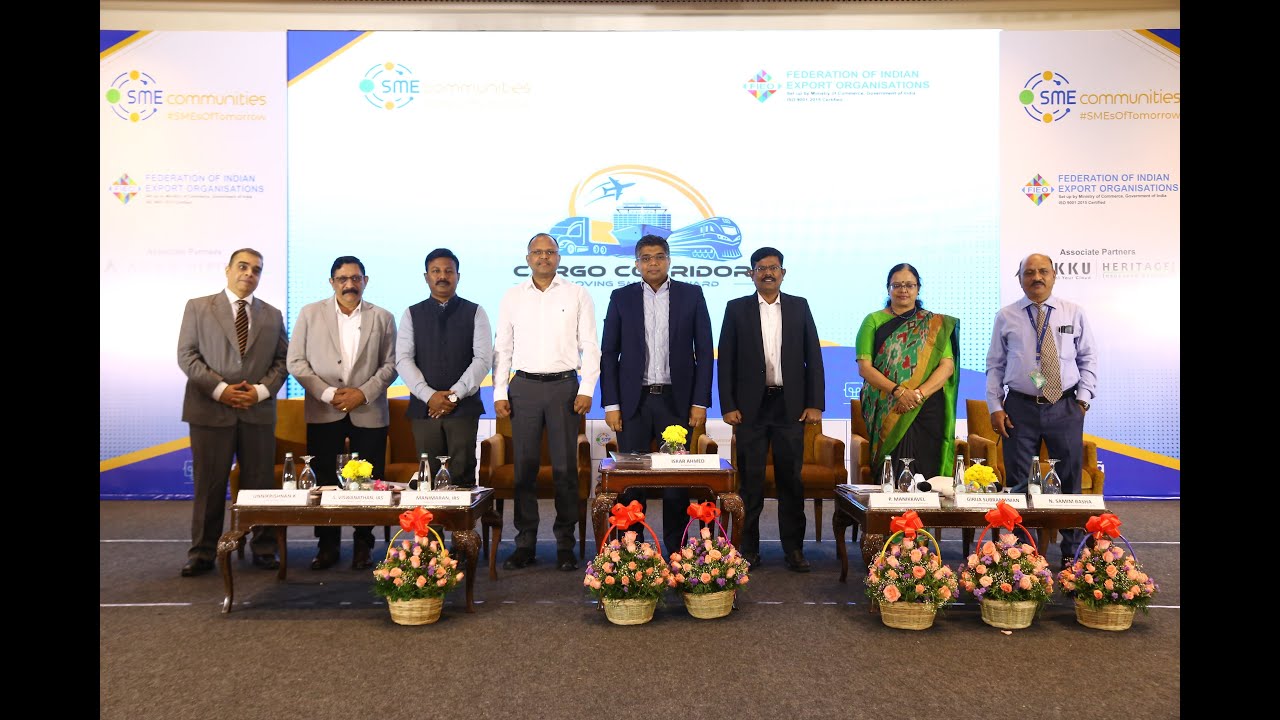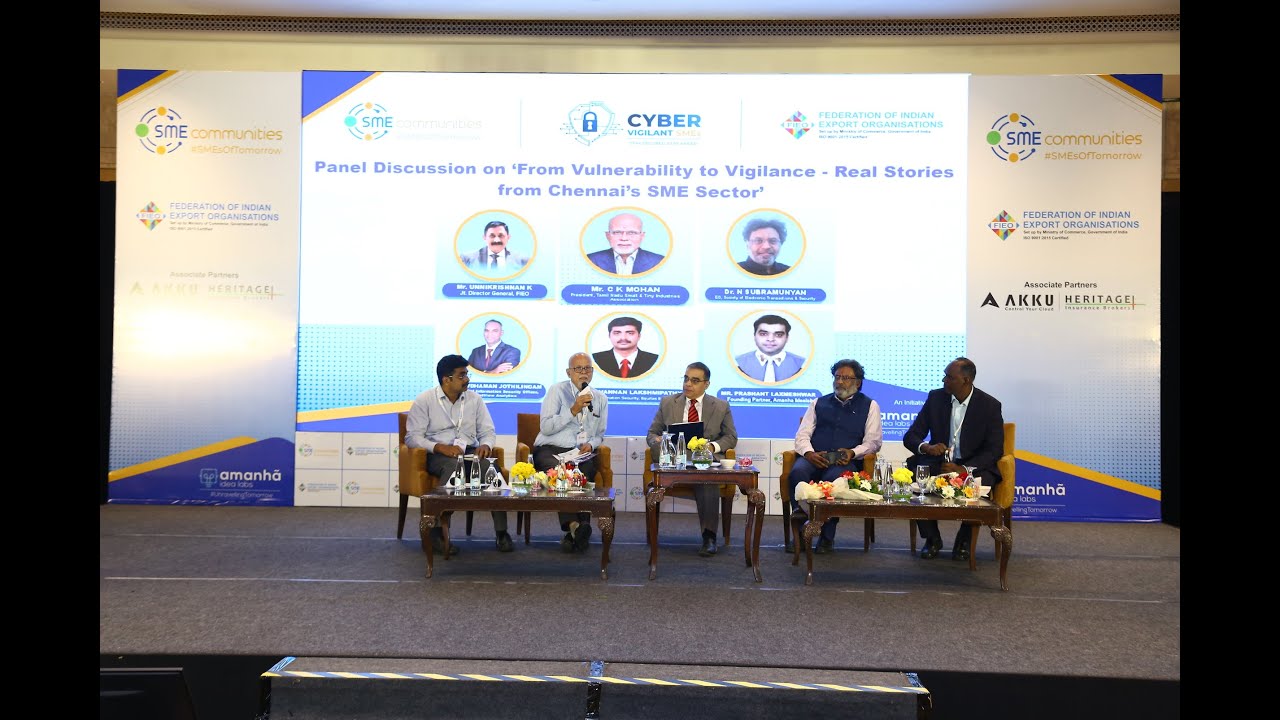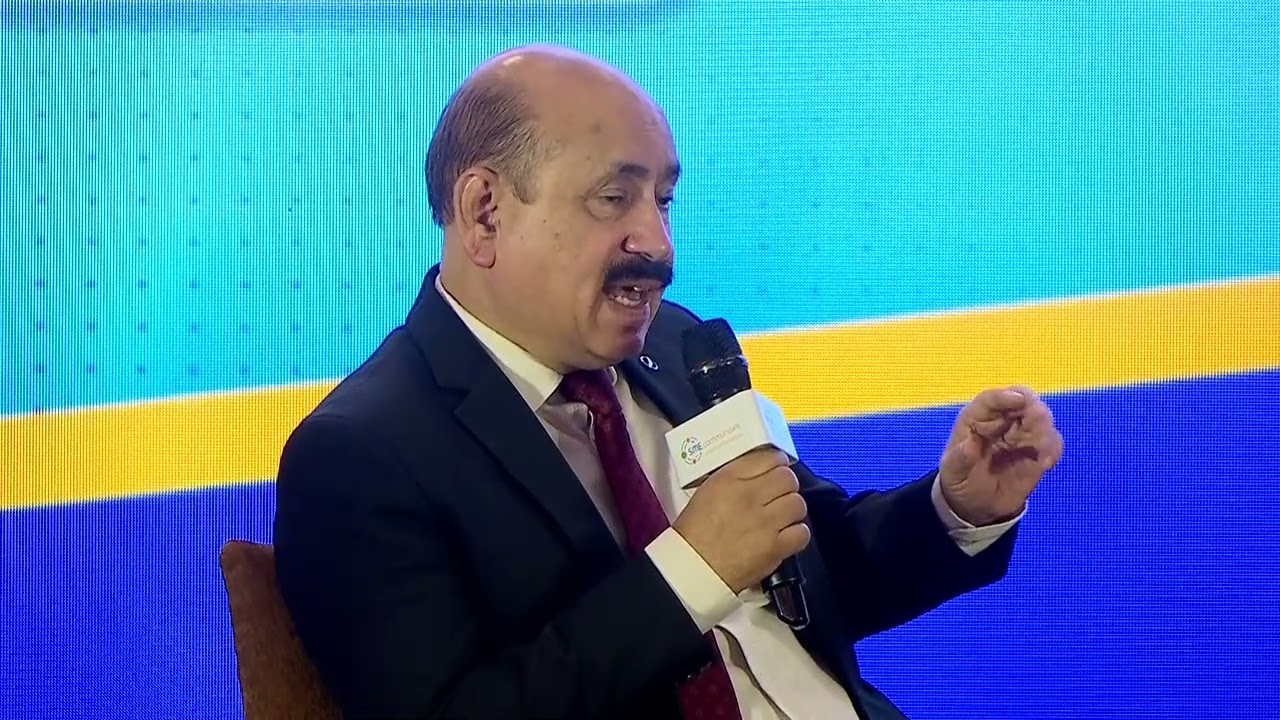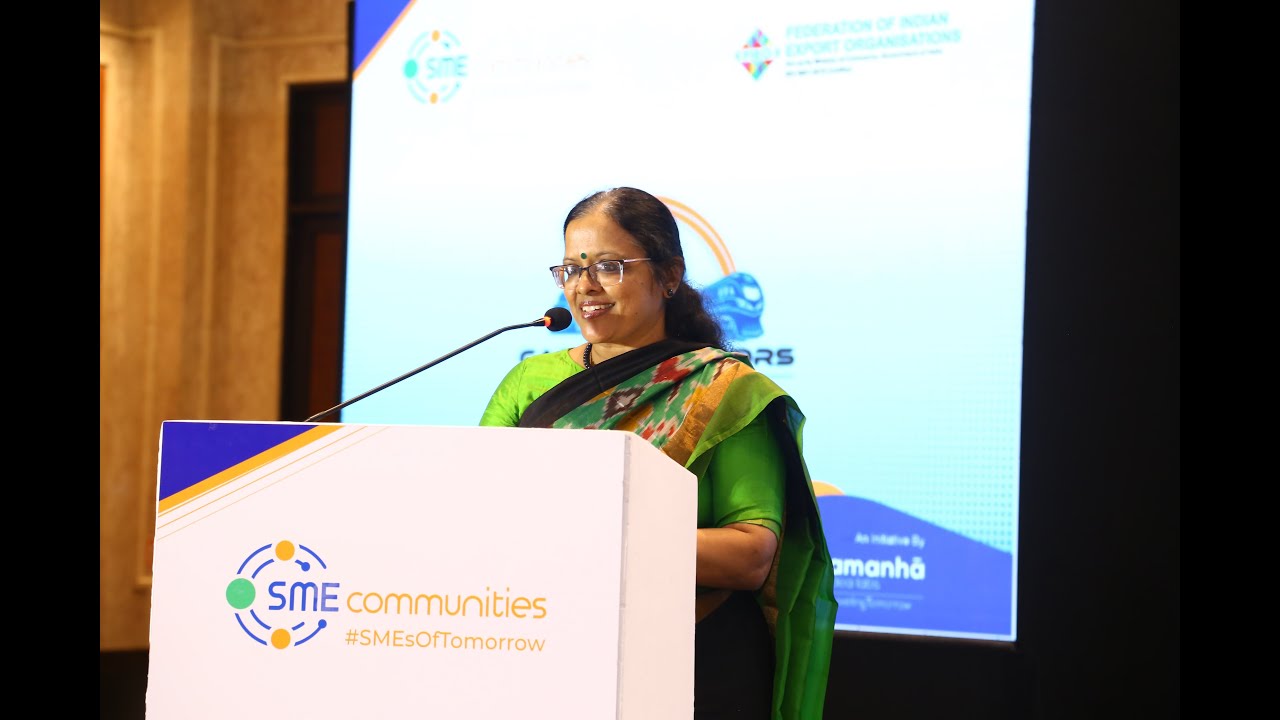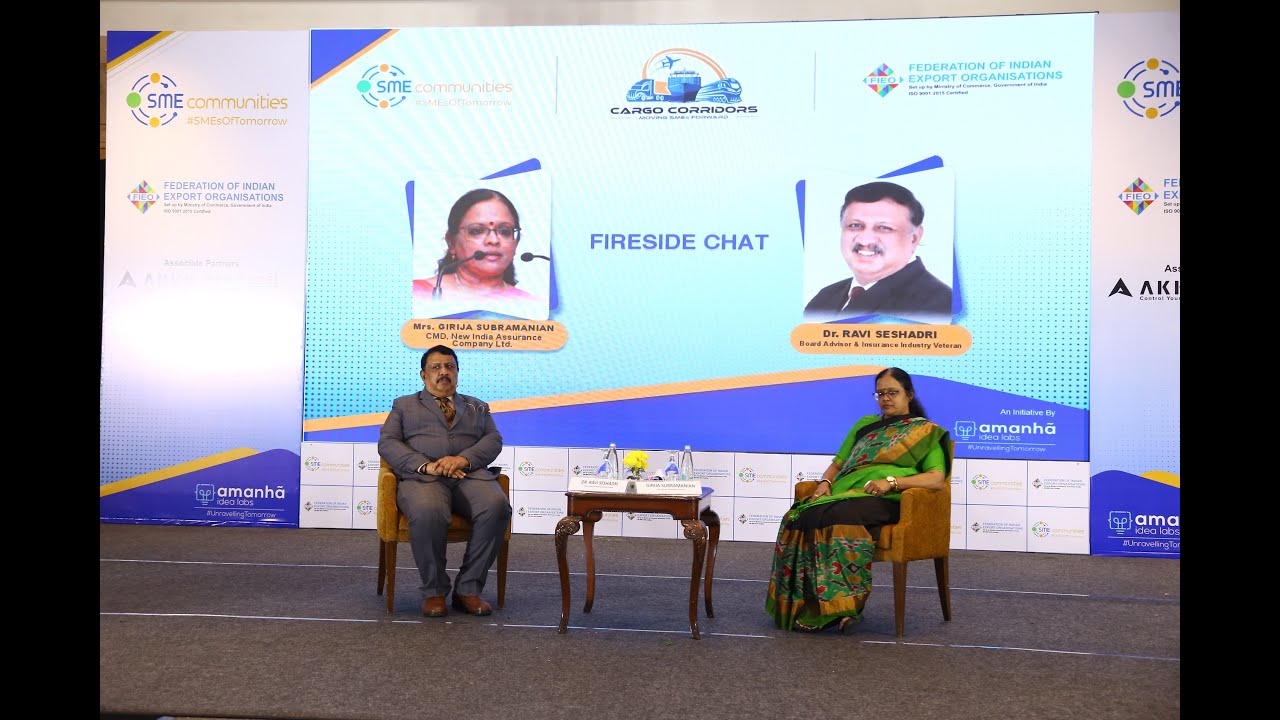Seamless Corridors, Stronger Trade: Insights from the Cargo Corridors Panel

India’s small and medium enterprises (SMEs) are the backbone of exports and employment, yet logistics remains one of their greatest hurdles. High costs, delays, and unpredictable freight cycles often erode competitiveness. At the Cargo Corridors: Seamless Corridors, Stronger Trade panel in Chennai, moderated by SME Communities’ Founding Partner Prashant Laxmeshwar, industry leaders from policy, finance, shipping and freight came together to chart a path toward smarter, faster and greener trade routes.
Mr. Unnikrishnan K, Joint Director General, FIEO, set the tone by stressing that infrastructure alone is not enough. “Policy predictability and market intelligence for SMEs are equally critical,” he noted, underscoring the importance of regulatory stability.
Mr. Krishna Kumar Nagarajan, Sr. VP, MSC Shipping, pointed to the sustainability shift. “Shipping lines are aligning with global sustainability norms. SMEs need support to integrate into greener supply chains,” he said, highlighting how exporters must prepare for stricter global standards.
Finance, too, emerged as a bottleneck. Mr. Shyam Mani, Group Head, CSB Bank, emphasized, “Export financing must be as seamless as logistics. Working capital delays kill competitiveness.” He invited dialogue with SMEs in logistics to better design financial products.
On the logistics front, speakers stressed integration over silos. Mr. D. Amalan, GM (C&O), CONCOR, spoke about rail cargo’s potential, provided last-mile and digital linkages are strengthened. Mr. Vijaya Kumar, CEO, Paramount Shipping, cautioned that “logistics costs are not just about freight rates, but delays and unpredictability.” Mr. Vipin Shankar, CEO, St John Freight Systems, urged the creation of integrated multimodal solutions to help SMEs meet global client expectations.
Air cargo, often critical for SMEs, was addressed by Mr. Dinesh Krishnan K, Chairman, ACAAI (Southern Region), who stressed the need for capacity planning and closer airport partnerships. Prof. Chandrasekaran Nagarajan, IFMR & Board Consultant, reminded the audience that competitiveness is systemic: policy, finance, and logistics must converge.
Closing the session, Prashant Laxmeshwar emphasized that logistics should no longer be treated as a cost centre. “Our SMEs need faster, cheaper and more predictable cargo corridors to thrive in a volatile world,” he said.
The panel’s discussions made one thing clear: India’s export competitiveness depends on reimagining logistics as a strategic advantage. By aligning policy, finance, and freight, India can unlock seamless corridors that empower SMEs to integrate into global value chains with confidence and resilience.






